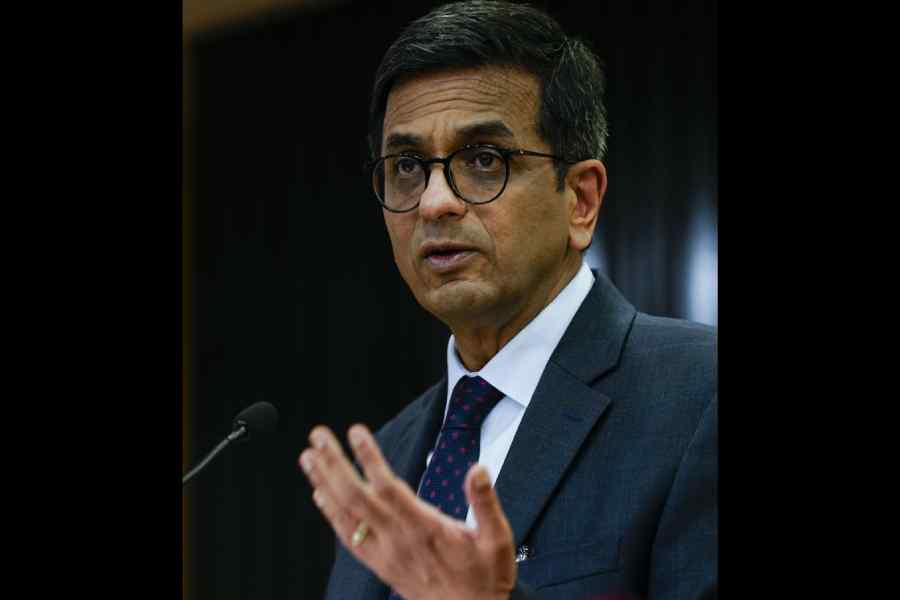More than four years after the historic Ayodhya verdict of the Supreme Court, Chief Justice of India DY Chandrachud on Monday said the five-judges, who ruled in favour of construction of a Ram temple by a trust at the disputed site, had unanimously decided there will be no authorship ascribed to the judgement.
On November 9, 2019, settling a fractious issue that went back more than a century, a five-judge bench headed by the then CJI Ranjan Gogoi had paved the way for construction of the temple and ruled that an alternative five-acre plot will be found for a mosque in the holy town in Uttar Pradesh.
In an exclusive interview with PTI, CJI Chandrachud, who was part of the constitution bench, candidly spoke on the issue of anonymity and said, when the judges sat together, as they do before a pronouncement, it was unanimously decided that this will be a "judgement of the court".
He was replying to the query as to why the name of the author judge was not made public.
"When the five-judge bench sat to deliberate on the judgement as we all do before a Judgement is pronounced, we all decided unanimously that this will be a judgement of the court. And, therefore, there was no authorship ascribed to any individual judge," the CJI said.
"The case has a long history of conflict, of diverse viewpoints based on the history of the nation and all those who were part of the bench decided that this will be a judgement of the court. The court will speak through one voice and the idea of doing so was to send a clear message that all of us stood together not only in the ultimate outcome but in the reasons indicated in the judgement," he said, adding "I will close my answer with that." Delivering a unanimous verdict on the case that long polarised the country and frayed the secular tapestry of Indian society, the apex court bench had said in 2019 that the faith of Hindus that Lord Ram was born at the site was undisputed, and he was symbolically the owner of the land.
Yet, it is also clear that the destruction of the 16th century three-domed structure by Hindu kar sevaks, who want to build a Ram temple there, was a wrong that "must be remedied," the court had said.
It said it is not concerned with faith and belief and instead treated the case as a title dispute over land between three parties -- the Sunni Muslim Waqf Board, the Nirmohi Akhara, a Hindu group, and the symbolic Lord Rama designated as Ram Lalla Virajman (the deity).
The judgement, running into 1,045 pages, was widely welcomed by Hindu politicians and groups, while the Muslim leadership said they will accept the verdict, even though they described it as flawed. Still, they called for peace and calm, and leaders across the political spectrum had noted that it was now time to move on.
Except for the headline, this story has not been edited by The Telegraph Online staff and has been published from a syndicated feed.











